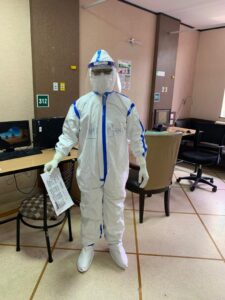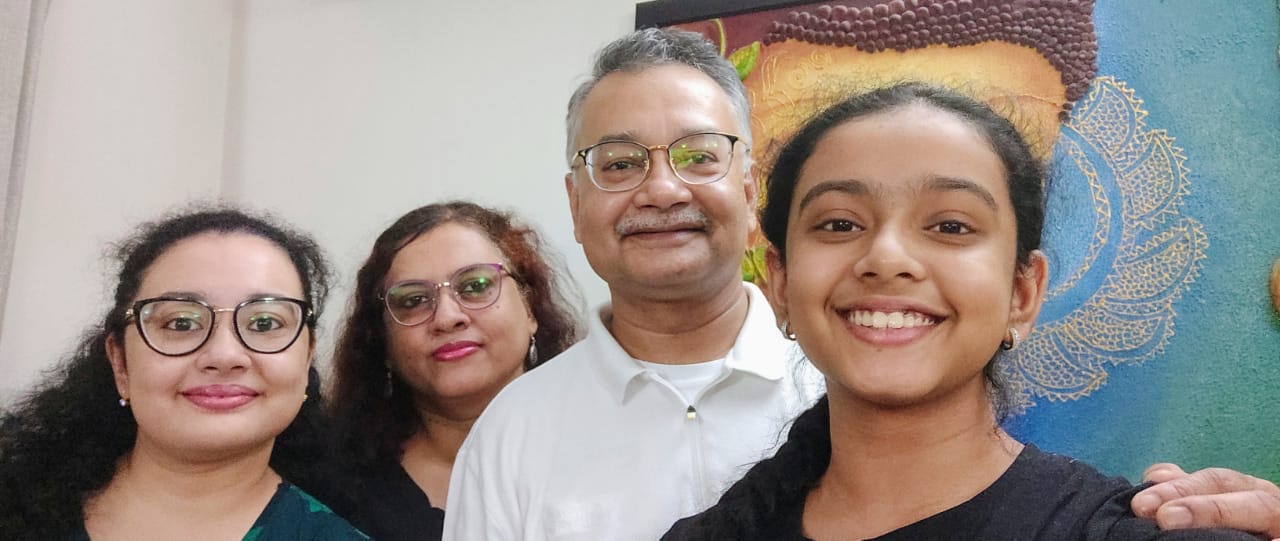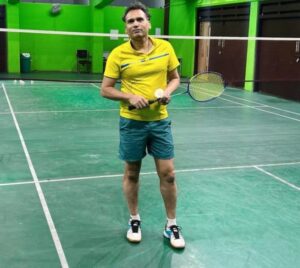
The COVID pandemic has turned things upside-down for almost every profession, but one profession that has been drastically impacted by the pandemic is that of medicine. Frontline doctors, nurses and other healthcare workers have been working relentlessly on their toes to control the spread of the virus and cure the patients, oblivious to the fact that it comes at the cost of their own safety and family time.
One such COVID warrior who is contributing unconditionally to this fight is Dr Amit Kumar Mandal, Director, Pulmonology, Sleep & Critical Care, Fortis Hospital Mohali. Despite working round-the-clock, Dr Mandal keeps going no matter what, but do you know what gives him the strength to move forward? The innocent smile on the face of his patients. We catch-up with Dr Mandal to know more about his life in pandemic!
How has your everyday routine changed since the pandemic?
My everyday routine has changed completely in every aspect.
Earlier all decisions were made at the bedside of every patient by assessing them and discussing their medical records. However, now all of that has to be done from a safe distance while being away from the patient’s area and that’s a huge challenge. We have to rely on what is being displayed on the monitors, the blood reports and the charts.
Communicating with the patient and the bedside nurses has become difficult due to wearing multiple layers of masks / PPE. A lot of it is done telephonically and through video calls which have their own challenges.
As far as the rounds in ICUs are concerned, earlier we had to go more than twice daily. Now we are able to go in only once in the day time after the detailed rounds from afar and then make a quick assessment (while being in full PPE with multiple masks).
Designated ICU areas with non-COVID patients were earlier cohorted in an area together, but now they have been segregated to allow for dedicated safe working areas for doctors and nurses as control rooms. The rounds which usually took 3 hours now take more than 5 hours to complete.
On the personal front, I have to stay in a room to myself with an attached washroom and have my meals there – to avoid spreading any possible infection to my family members. I reach home late as the work never seems to finish. Patients are usually coming in at late hours and I need to assess them, counsel them, advise them on their prognosis and treatment, etc. So, the family time has been grossly compromised and reduced to negligible.
What are some key challenges that you tend to face while being in the shoes of a doctor these days?
Every aspect of medical care has become really challenging in the COVID-19 times. Apart from all as enumerated above – the bigger challenges are as follows:
Communication with patients and their family: Earlier we met them physically daily and on a regular basis. However, now there are different doctors on different days, and in PPE we are not even recognisable (unless we have written our names on our PPE).
Meeting expectations: Every family needs to be updated on a daily basis and each conversation takes approximately 20-30 minutes at times and then some ask for more than once. Then they have doctors/well-wishers who want to stay updated on a regular basis, and then there are also the VIP patients whose medical updates need to be shared with all in the local administration as well as their well-wishers – political/bureaucracy, etc.
Everyone wants to have a happy discharge: Unfortunately, the sicker patients don’t and we have to make more than 2-3 calls.
Have you or your family recently witnessed any societal stigma owing to your high risk of contracting the virus?
Thankfully – No, and that has been a huge relief and comforting feeling.
Can you envision a ray of hope in the months to follow?
The only ray of hope I can envision is to see a downfall in the numbers of patients asking for admission and low death rates across the state and country (we have low rates at our hospital). We will have to learn to live with the disease as it is not going to disappear and learn to deal with it too.
The next wave is bound to come and we need to stay prepared for the same; especially when schools and colleges would open as there would be large gatherings and travelling in public transport would also be allowed.
Despite all the physical and mental turmoil, what keeps you going?
The smile on the faces of our patients and their families, and the great words that they have for our staff, doctors and the hospital is what keeps me going!
One final message for the readers:
Life cannot stop and we will have to learn to live with the virus amongst us and move forward. This disease has taught us the power of partnerships – strong with weak, public with private, skilled with unskilled, rich with poor – and we need to build our future on a new and bolder platform – a stronger and more powerful India.







Comments are closed.